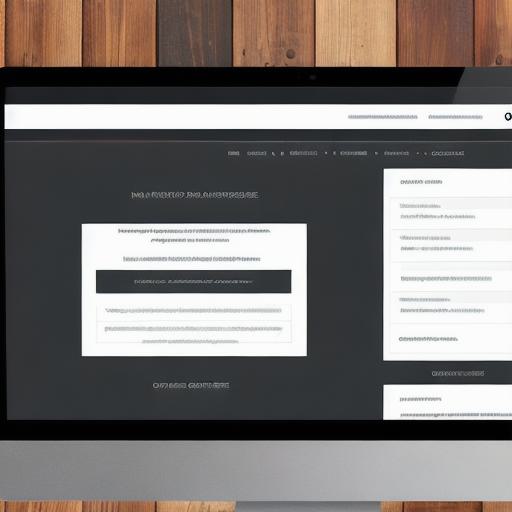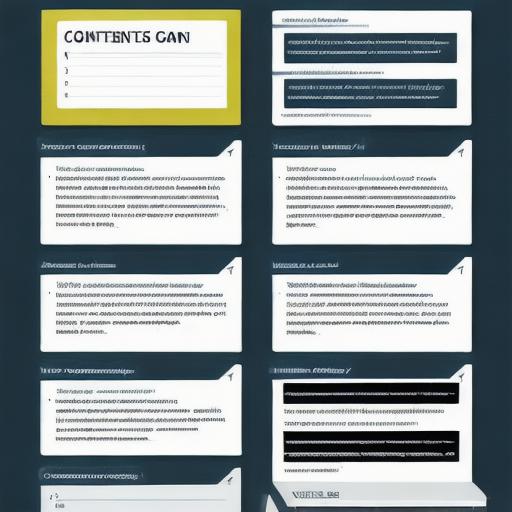Marketing has become a crucial aspect of every business, and the internet provides the perfect platform for reaching customers on a global scale. However, standing out among the competition can be challenging, especially in today’s digital age where businesses are bombarding consumers with marketing messages. That’s where marketing utilities come into play – tools designed to help businesses improve their online presence and reach more customers.
In this article, we will explore how marketing utilities can help businesses improve their online presence and attract more customers. We will also discuss some of the most popular marketing utilities available in the market today and provide real-life examples of how they have helped businesses achieve their goals.
Introduction: Why Marketing Utilities Matter
Marketing utilities are software tools that help businesses automate, streamline, and optimize their marketing campaigns. These tools can be used to improve search engine optimization (SEO), social media marketing, email marketing, content marketing, and other types of online marketing. With the right marketing utility, businesses can save time, money, and resources while improving their online presence and reaching more customers.
Marketing utilities are becoming increasingly popular because they provide businesses with actionable insights that help them make data-driven decisions. These tools use machine learning algorithms to analyze vast amounts of data and provide recommendations on how to improve marketing campaigns. They can also be used to automate repetitive tasks, such as scheduling social media posts or creating email campaigns, freeing up time for businesses to focus on other aspects of their operations.
SEO Marketing Utilities: Boost Your Visibility in Search Engine Results Pages (SERPs)
Search engine optimization (SEO) is the process of optimizing a website to rank higher in search engine results pages (SERPs). This can be achieved by using various SEO marketing utilities that help businesses improve their on-page and off-page SEO.
On-page SEO refers to optimizing the content on a website to make it more relevant and valuable to users. Some of the most popular on-page SEO marketing utilities include:
- Keyword research tools – These tools help businesses identify relevant keywords to target in their marketing campaigns. They can be used to analyze search engine data and identify trends, helping businesses make informed decisions about which keywords to target.
- Content optimization tools – These tools help businesses optimize their website content for search engines by analyzing the readability, structure, and relevance of their content. They can also be used to suggest ways to improve page loading speed, which is a crucial ranking factor.
- Link building tools – These tools help businesses build high-quality backlinks from other websites, which can boost their website’s visibility in SERPs. They can also be used to monitor and analyze link profiles, helping businesses identify opportunities for link reclamation and link building.
Off-page SEO refers to optimizing a website’s online presence by improving its authority, relevance, and trustworthiness. Some of the most popular off-page SEO marketing utilities include:
- Local search engine optimization tools – These tools help businesses optimize their online presence for local search queries, helping them attract more customers in their local area. They can be used to manage business listings on local directories and review sites, as well as monitor and respond to customer reviews.
- Social media marketing utilities – These tools help businesses manage their social media accounts, automate posts, track engagement, and analyze performance metrics. They can also be used to monitor brand mentions and sentiment analysis, helping businesses identify opportunities for customer engagement and feedback.
Case Study: How Marketing Utilities Improved a Small Business’s Online Presence

John and Jane are the owners of a small bakery in a busy downtown area. They had always relied on word-of-mouth marketing to attract customers, but they knew that they needed to improve their online presence if they wanted to reach more people. They decided to invest in a marketing utility called SEMrush, which provided them with actionable insights into their website’s performance and search engine rankings.
Using SEMrush, John and Jane were able to identify relevant keywords to target in their marketing campaigns, optimize their website content for search engines, and monitor their backlink profile. They also used the tool to track their local search engine rankings and improve their visibility on review sites like Yelp.
Within six months of using SEMrush, John and Jane’s bakery saw a significant increase in traffic to their website, with more customers finding them through search engines. They also received more positive reviews on Yelp, which helped boost their online reputation and attract more customers to their business.
Content Marketing Utilities: Create and Share Valuable Content with Ease
Content marketing is the process of creating and sharing valuable content to attract and retain customers. This type of marketing can be highly effective, but it can also be time-consuming and resource-intensive. That’s where content marketing utilities come in – tools designed to streamline the content creation and distribution process.
Some of the most popular content marketing utilities include:
- Content creation tools – These tools help businesses create high-quality content quickly and easily. They can be used to generate blog posts, social media posts, videos, and other types of content that are optimized for search engines and social media platforms.
- Social media scheduling tools – These tools help businesses schedule social media posts in advance, reducing the time and effort required to manage their social media accounts. They can also be used to monitor and analyze engagement metrics, helping businesses identify opportunities for customer engagement and feedback.
- Email marketing utilities – These tools help businesses create and send targeted email campaigns to their customers, improving engagement and conversions. They can also be used to automate email marketing campaigns based on user behavior or preferences.
Case Study: How Content Marketing Utilities Boosted a Blog’s Traffic
Sarah is a blogger who writes about healthy living and nutrition. She had always relied on organic traffic to her blog, but she knew that she needed to improve her online visibility if she wanted to reach more people. She decided to invest in a content marketing utility called Canva, which provided her with templates and design elements for creating high-quality images and graphics.
Using Canva, Sarah was able to create visually appealing content that stood out on social media platforms like Instagram and Pinterest. She also used the tool to create email campaigns promoting her blog posts to her subscribers, improving engagement and conversions.
A PLACE FOR A PICTURE #2
Within six months of using Canva, Sarah’s blog saw a significant increase in traffic, with more people finding her through social media and search engines. She also received more comments and shares on her blog, which helped boost her online reputation and attract more readers to her content.
Email Marketing Utilities: Reach Customers Directly with Personalized Messages
Email marketing is a highly effective way to reach customers directly and drive conversions. However, sending irrelevant or spammy emails can harm your brand’s reputation and reduce customer engagement. That’s where email marketing utilities come in – tools designed to help businesses create and send targeted email campaigns that are personalized and relevant to their customers.
Some of the most popular email marketing utilities include:
- Email automation tools – These tools help businesses automate repetitive tasks, such as sending welcome emails or abandoned cart emails, freeing up time for other aspects of their operations. They can also be used to segment customers based on behavior or preferences, allowing businesses to send targeted messages that are more likely to convert.
- Email list building tools – These tools help businesses grow their email lists by providing incentives or contests in exchange for customer contact information. They can also be used to monitor and clean up email lists, reducing the risk of sending emails to invalid or spammy addresses.
- Email analytics tools – These tools help businesses track email open rates, click-through rates, and conversion rates, allowing them to optimize their email campaigns for better results.
Case Study: How Email Marketing Utilities Increased Sales for an E-commerce Business
Mike is the owner of an online clothing store that specializes in sustainable fashion. He had always relied on social media marketing to drive sales, but he knew that he needed to improve his email marketing strategy if he wanted to increase conversions. He decided to invest in an email marketing utility called Mailchimp, which provided him with templates and design elements for creating visually appealing emails.
Using Mailchimp, Mike was able to create targeted email campaigns promoting new products or sales to his subscribers, improving engagement and conversions. He also used the tool to automate abandoned cart emails, reminding customers of items they had left in their cart.
Within six months of using Mailchimp, Mike’s online clothing store saw a significant increase in sales, with more customers making purchases through email campaigns. He also received more positive customer feedback and reviews, which helped boost his online reputation and attract more shoppers to his business.
Conclusion: The Power of Marketing Utilities
Marketing utilities can be highly effective in helping businesses improve their online presence and drive results. From improving website search engine rankings to creating targeted email campaigns, there are a variety of tools available that can help businesses achieve their marketing goals. Whether you’re a small business owner or a large enterprise, investing in the right marketing utility can help you save time and resources while achieving better results.




